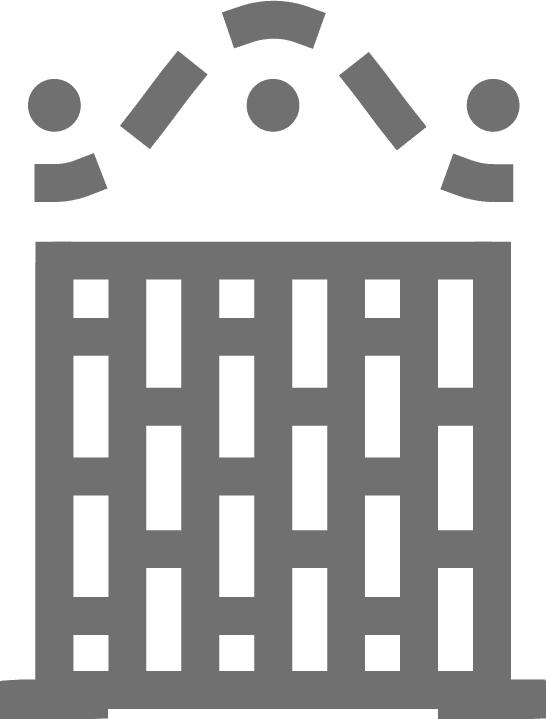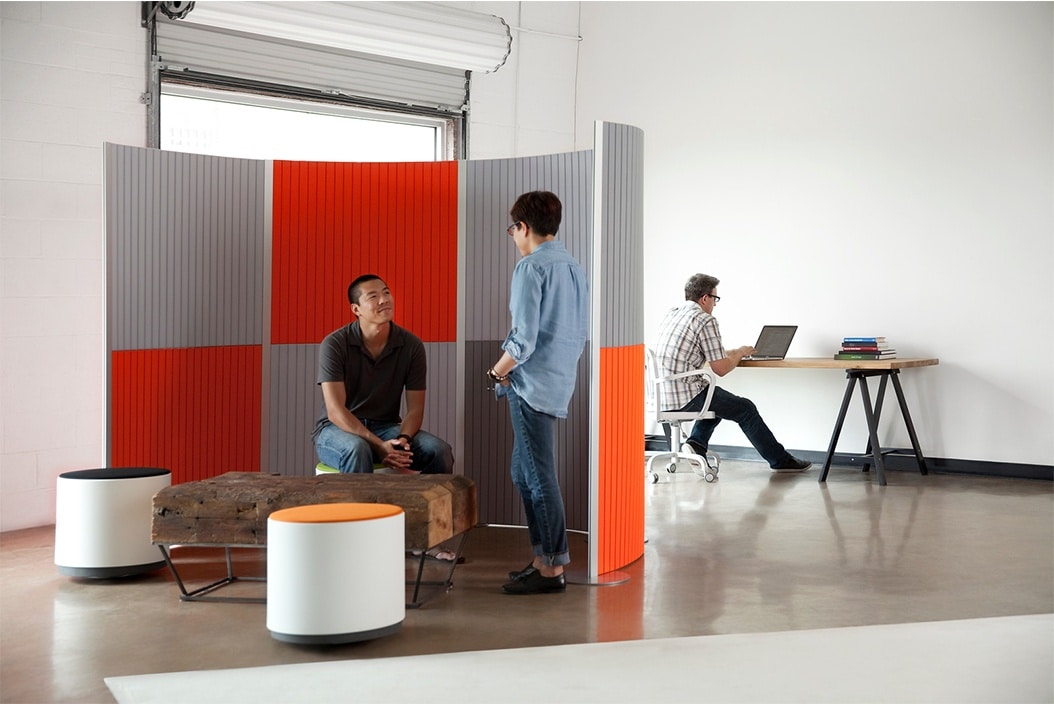According to Forbes, 30 million Americans work from home at least one day of each week and one in three will be hired to work online from anywhere they want. This swift switch from the traditional “AIS” mentality (you can Urban Dictionary that acronym if you don’t know it) of old is starting to shape how companies design their office spaces. This increased autonomy, made possible mostly by technology and digital communication tools, is translating to employees having more control over where and how they work when they’re actually in the office. For those designing office solutions, the importance of flexibility can’t be ignored. Employees now require, if not demand, control of their surroundings.
Discover ideas for optimizing your space to maximize productivity with our free guide.
Employees with Autonomy Are More Likely to Be Engaged
The move towards employee autonomy is supported by collections of evidence that more autonomy leads to a more engaged and productive workforce. According to a study by the London School of Economics, employee autonomy is “positively related to worker satisfaction, organizational commitment, and participation in knowledge exchange.” As more work is done remotely, employees are starting to reap the benefits of receiving more control of their work environment. Offices are responding to this trend by giving their employees spaces dedicated to specific functional purposes, such as phone booths, that allow people to concentrate on tasks that require absolute isolation and privacy. In other cases, this can mean spaces dedicated to not only individual work, but also small group meetings of 2-4 team members that don’t take valuable conference room meeting space.
Collaboration Takes Center Stage, But Requires Tweaking
The rise of the open office is a response to many factors, including the push for autonomy and the low cost. As a direct result, collaboration has taken a more vital and central role in many companies. In an interview by The Harvard Business Review, Jason Fried, the CEO and founder of Basecamp, noted that this push for more collaborative work environments have led to some negative results. As Fried puts it, there is an “epidemic of over collaboration and over communication.” The problem, he says is that “collaboration is something managers seem to look at and think is particularly good. Because they see activity. They see people working. They see people moving. They hear the buzz.” In response, the open office is reversing itself. As noted by Fast Company, the open office style was largely a result of capturing the Silicon Valley-esque startup vibe, but now is trending towards including more private spaces. In a world where employees are trying to gain more control in their workspaces, this reversal is embraced.
Modular Office Partitions: More Autonomy and Real-Time Flexibility
Modular office partitions have an advantage in a flex office since they don’t require business owners to construct permanent structures. For employees, this means more autonomy and the ability to change the layout of their space in real time when they need it. Using office partitions as a framework, dealers can create dedicated private or collaborative spaces for clients based on their initial needs. End users can take that initial framework and run with it, using creativity and day-to-day tasks to dictate how they want their offices to function at a given time. Privacy and collaboration levels can be adjusted on a dime, allowing business owners and employees to create individualized spaces for specific roles and/or overall company behavior patterns.
Taking Advantage of the Opportunity Change Presents
As attitudes and the approach to work change, there’s an opportunity for business owners to take control of their office spaces. Each employee hired is different and, as a company grows, there will be more unique demands and work styles to accommodate.
Need more private spaces because more software or website developers are hired? With a combination of modular walls and office design planning, office spaces can be transformed to become more conducive for focused tasks.
Need more small meeting areas or touchdown spaces as your company becomes more “work-from-home” oriented? Those requirements can be quickly met with the right blend of acoustic modular panels and furniture.
Since change is the only constant in the modern office, it’s better to be prepared for flexibility. As work attitudes change to accompany actual change, the office must be ready to meet that trend head on.





















